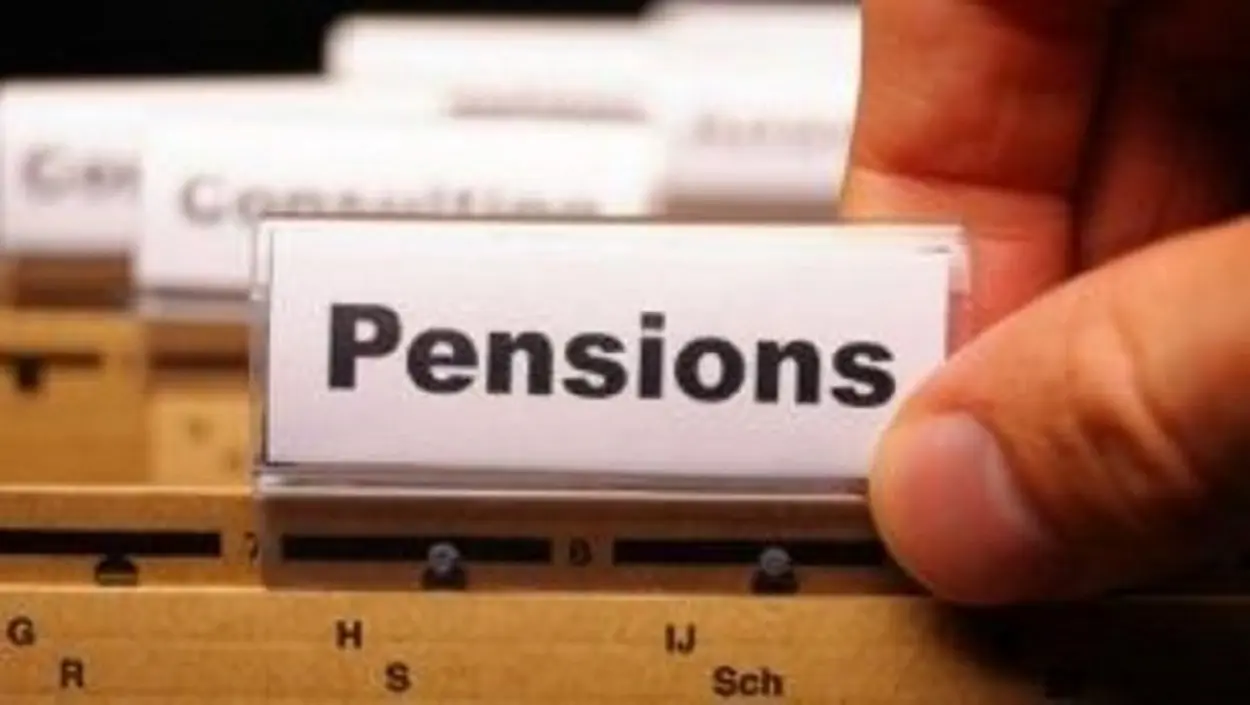COVER
FG Seeks Liberal Visa Regime for Nigerian Coys

By David Torough, Abuja
The Minister of Information and National Orientation, Alhaji Mohammed Idris has called for a more liberal visa regime for Nigerian companies seeking to establish businesses in foreign countries.
The minister made the call in Addis Ababa, Ethiopia, when he represented President Bola Tinubu at a meeting with executive members of the Nigerian community in Ethiopia.
The Special Assistant on Media to the minister, Malam Rabiu Ibrahim said in a statement in Abuja that the meeting was held on the sidelines of the 38th Ordinary Session of the Assembly of African Union Heads of State and Government.
Idris, according to the statement, said it was only fair for other countries to reciprocate Nigeria’s gesture in providing an enabling environment for foreign companies to invest and operate.
“Last year, I was representing Nigeria in Indonesia and I found out that about 50 big Indonesian companies are operating in Nigeria, but we do not have up to five Nigerian companies operating in Indonesia.
“If they want to come to our country to trade because of our population and ability to purchase their goods and services, then there should also be that reciprocal arrangement where Nigerians are also given their rightful place,” he said.
On the Ethiopian government’s cancellation of the e-visa and visa-on-arrival options for Nigerian travellers, Idris gave an assurance that the matter would be handed over to the Minister of Foreign Affairs for appropriate diplomatic engagement.
While acknowledging the concerns raised by Nigerians in Ethiopia, the minister emphasised that visa policies among nations were typically based on the principle of reciprocity.
He stressed the need for balanced and mutually beneficial agreements.
Idris however, urged Nigerians living abroad to consistently demonstrate good conduct and responsible citizenship in order to promote the image of the country to the outside world.
“We don’t allow bad people to represent us and that’s where you come in.
”You are the ones who are here and if you don’t represent us well, there is no way we will look good,” he said.
The minister said the current administration had achieved a lot in revamping the economy through provision of infrastructure, curbing insecurity and the restoration of investor confidence.
Idris said Nigeria recently secured $1.07 billion in Foreign Direct Investment for the establishment of drug and pharmaceutical manufacturing industries.
He said this significant investment marked the beginning of Nigeria’s medical industrialisation by positioning the country as a key player in pharmaceutical production.
According to him, this will reduce dependency on imports, create jobs and strengthen the nation’s healthcare sector.
The minister said about N32 billion had been disbursed to students under the Students Loan Scheme in less than 250 days.
This, he said, was to ensure that no student was denied access to quality education due to lack of funds.
Idris, who reaffirmed the government’s commitment to tackling the nation’s security challenges, disclosed that security forces neutralised 8,000 terrorists and bandits, rescued 8,000 kidnapped victims and recorded 11,600 arrests in 2024.
The minister also stated that the Kaduna-Abuja Expressway, once notorious for criminal activities, had now been successfully cleared of criminal elements.
He said the improved security on the route had brought significant relief to commuters.
According to him, reform is usually a very difficult task and there is a gradual progression toward prosperity for all as promised by the president.
The statement quoted the President of the Nigerian Community in Ethiopia, Mr Muideen Alimi, as saying that a workshop was underway in collaboration with Nigerians in the Diaspora Commission.
The workshop, he said, would focus on enhancing economic development through intra-African trade.
He urged Nigerians to support the plan to set up the African Central Bank as well as have a strong presence in the African Remittance Agency.
COVER
FG Disburses N5.12bn Pension Arrears to 90,689 DBS Pensioners

By Tony Obiechina, Abuja
The Federal Government has released funds for the disbursement of N5.12 billion in pension arrears to 90,689 Defined Benefit Scheme (DBS) pensioners under the Pension Transitional Arrangement Directorate.This was contained in a statement by the Head of Corporate Communications of PTAD, Olugbenga Ajayi.
He said that the directorate had finalised the disbursement of the money. The Nigeria Customs Service, the Nigeria Immigration Service, and Prisons Pension Department (CIPPD) pensioners are 8,626, received N276,032, for one-month arrears; the Police, Pension Department (PPD) pensioners are 9,681, received N619,584, for two months as arrears. The Civil Service Pension Department (CSPD) pensioners are 12,773, received N408,736, for one-month arrears, and the Parastatals Pension Department (PAPD) pensioners are 59,609, received N3,814,He said that the payment reaffirms the administration’s commitment to ensuring that pensioners receive their due entitlements in line with the Renewed Hope Agenda of President Bola TinubuAccording to the statement, the approvals align with the President’s Renewed Hope Agenda.“This move shows President Tinubu’s strong commitment to senior citizens’ welfare and marks a new era in DBS pension management,” said PTAD, Executive Secretary, Tolulope Odunaiya.Among the key measures is the immediate implementation of an extra budgetary allocation to enforce new pension rates for DBS pensioners.The President also endorsed the adoption of a proposed pension harmonisation policy, which will be incorporated into the 2026 pension budget. Additionally, health insurance coverage for all DBS pensioners has been approved, ensuring access to essential healthcare services.The proposed reforms include a new pension rate of N32,000 and incremental increases of 10.66% and 12.95% for pensioners from defunct and privatised agencies. Other components of the reform package include harmonisation of pension rates across all DBS pensioners and their enrolment into the National Health Insurance Scheme (NHIS).In June, PTAD announced the successful disbursement of N8.6 billion in pension arrears to 148,625 eligible DBS pensioners across various sectors. The payments reflect the implementation of the N32,000 pension increment approved by President Tinubu in 2024.PTAD had previously settled arrears related to the first pension increment of 20% to 28%, which came into effect in January 2024.COVER
NAF Offensive Decimates 592 Terrorists, Destroys 372 Assets in Eight Months

By David Torough, Abuja
The Nigerian Air Force (NAF) has killed no fewer than 592 terrorists and destroyed 372 enemy assets in Borno within the last eight months, surpassing the total operational gains recorded in 2024.A statement by NAF’s spokesman, Air Commodore Ehimen Ejodame yesterday said the Chief of the Air Staff (CAS), Air Marshal Hasan Abubakar, said this during a courtesy visit to Gov.
Babagana Zulum of Borno. Abubakar said the offensive had destroyed 206 technical vehicles and 166 logistics hubs in deep hostile territory, with coordinated day-and-night strikes from Gonori to Rann, Dikwa to Damboa, Azir to Mallam Fatori.He said the offensive had been boosted by the deployment of A-29 Super Tucano aircraft capable of precision and night missions, Mi-171 helicopters for medical evacuation and logistics, and enhanced intelligence, surveillance and reconnaissance platforms for round-the-clock target tracking.He added that a new Mi-35 gunship was expected to further intensify close-air support for ground troops in the theatre.“Backed by an upgraded fleet and precision night-strike capabilities, NAF aircraft executed 798 combat sorties, clocking over 1,500 operational flight hours in the Air Component of Operation Hadin Kai.“This year, our air war is faster, sharper, and more surgical.“We are taking out high-value targets, crippling their logistics, and hunting down every cell that threatens the peace of the North-East,” he said.The CAS also praised the “Borno Model” of combining community-driven non-kinetic measures with decisive military action, saying it had proven effective in the counter-insurgency campaign.He also inspected facilities at the NAF Base, met with aircrew and ground personnel, and received operational briefings.He reaffirmed the NAF’s commitment to precision air power, intelligence-led operations, and inter-agency collaboration to protect Nigerians.In his response, Gov. Zulum praised the NAF for its sustained air support in degrading terrorist capabilities and protecting communities.According to him, the NAF has been a steadfast partner in their fight against insurgency.“Your operations have saved countless lives and allowed our communities to begin rebuilding.“The people of Borno recognise your sacrifices and stand firmly behind you,” he said.COVER
Over 8,000 Mentally ill Inmates in Custody Nationwide, Says NCoS

By Divine Ndukwe, Abuja
The Nigerian Correctional Service (NCoS) has disclosed that at least 8,246 inmates across the country’s custodial centres are living with mental health conditions.Assistant Controller General of Corrections in charge of Medical Services, Dr.
Glory Essien, revealed the figures yesterday in Abuja during the third public hearing of the Independent Investigative Panel on Alleged Corruption, Abuse of Power, Torture and Other Inhumane Treatment by the NCoS. Essien described incarceration as a deeply stressful experience, noting that the loss of freedom can trigger or worsen mental health conditions. She explained that inmate-leaders are trained to identify and report cases of psychological distress for early intervention, but available resources remain insufficient.“If you’re in a facility housing 500 to 1,000 inmates, with just one doctor or psychologist, monitoring everyone individually is impossible,” she said, citing logistical and funding challenges that hamper adequate care.Similarly, the NCoS Assistant Controller General in charge of Pharmaceutical Services, Mohammed Bashir, acknowledged that drug shortages and limited staffing remain major obstacles despite government funding.He revealed that a psychological services unit has been established, partnering with psychiatric associations to visit major facilities, though resources still fall short of demand.Permanent Secretary in the Ministry of Interior, Dr. Magdalene Ajani, called for urgent private sector support, stressing the need to deploy more psychiatric professionals to underserved states. “Please come to Macedonia and help us,” she appealed to the Nigerian Medical Association and pharmaceutical companies.Meanwhile, in Kwara State, the Nigerian Medical Association (NMA) has expressed alarm over rising mental health issues among doctors, linking the trend to burnout, workplace violence, and poor working conditions.Kwara NMA Chairman, Prof. Olushola Abdulrahman Afolabi, said a significant proportion of doctors experience depression, anxiety and other psychiatric disorders, often without seeking help due to stigma.Former NMA chairman, Prof. Issa Baba Awoye, warned that current figures could be worse than past studies, especially in resource-poor settings.The NMA is advocating for mandatory mental health evaluations for doctors, alongside increased awareness and stigma reduction campaigns. “Our healthcare system can only be as strong as the mental and physical well-being of those who sustain it,” Afolabi stated.Both the NCoS and NMA agree that mental health care must be prioritized, not just for inmates, but for those tasked with caring for the nation.



















